

How to find Research Papers: A Cheat Sheet for Graduate Students
- July 23, 2022
- PRODUCTIVITY

“I will read this paper later.” I thought to myself before adding another paper to my overflowing internet browser.
Of course, I didn’t read it later.
Since my workflow was unorganized, I missed out on reading many important papers.
This was a crucial period in my undergraduate career. I had been working with a company for my final year project and knew success would require a solid intellectual foundation. For many hours, I read papers, determined to master the literature in my field.
“How to find research papers quickly?” has been a never-ending question for me.

However, I was unable to succeed despite my best intentions, largely due to inefficiency. In addition, I did not have a system in place for keeping track of new papers being published daily in my topic area or checking if I had missed key studies.
Nothing is worse than forgetting where you saved an important research paper. If I couldn’t find that specific paper, I couldn’t do anything else, and sometimes a day would pass before I found it.
As I was about to begin my PhD, I convinced myself that I should be more organized.
This is the first post of the four-part blog series: The Bulletproof Literature Management System . Follow the links below to read the other posts in the series:
- How to How to find Research Papers (You are here)
- How to Manage Research Papers
- How to Read Research Papers
- How to Organize Research Papers
My workflow has evolved through many iterations, and I have finally found a system that suits my needs after lots of trial and error.
These tips will help you how to find research papers quickly and more efficiently.
Get recommendations from your supervisor
You may have already received a folder of information from your supervisor regarding your thesis topic. Your supervisor should have already been working on the proposal before you were hired for a funded project.
My supervisor, for example, has a folder named “Literature” for each project folder that contains all the important papers one might need to complete that project.
Therefore, asking your supervisor is one of the most straightforward ways to find research papers.
Even though your supervisor has not put up a folder like that, you can still ask them for recommendations, and they can point out a couple of pertinent articles. From there, you can find the references in the papers they recommended.
Use feed aggregators
Feed aggregators, such as Feedly , Inoreader , and NewsBlur , help me organize my feeds. In the morning, I dedicate five minutes to scanning my feed. For most papers, I just glance at the title and scroll past. Whenever I come across something interesting, I add it to my ‘Read Later’ folder.
Instead of storing papers in an unsecured location, my papers are more secure. As a result, it is much easier for me to look at that folder later on.
Use literature mapping tools
ResearchRabbit , Inciteful , Litmaps , and Connected Papers are literature-mapping tools you can use to dig deeper into a topic. It lets you see which papers are the most groundbreaking in a given field based on their citation networks.
This might not be very helpful if you’re doing research in a relatively new area. Finding relevant research papers in such cases may be more challenging.
This is why checking research databases would be a better option.
Use standard research databases
Scopus has strong searching capabilities and publishes metrics that can measure the relative importance of papers in their fields. However, it may take up to 2 years before an article is included in Scopus.
It has more features for sorting and filtering, so you might not feel overwhelmed when searching.
Therefore, if you are just starting your research, SCOPUS might be an excellent option for finding research papers.
ResearchGate
In addition to traditional searching for publications, ResearchGate offers the following features:
- Follow researchers in your field, so you can keep up with their work.
- Keep up-to-date with the research projects of other researchers by following their research projects, and
- Comment on publications, ask questions, and send direct messages to interact with others.
As most of the comments on ResearchGate are coming from experts in their respective fields, the QnA section may be a great resource for finding the right paper for your research.
An RSS(Really Simple Syndication) feed, as the name implies, is a straightforward solution. By subscribing to RSS, users can access content from specific websites.
You can find RSS feeds for nearly every major journal and preprint server on their home pages – just look for the orange icon. As new articles are added to PubMed or Google Scholar, you can even subscribe to specific keywords.
Use academic textbooks the right way
If you are new to a particular research area, it would be best to start by reading textbooks to understand the topic better.
Despite the lack of depth and detail in a textbook, it can provide you with the basic concepts you need to read further. Furthermore, textbooks often include extensive lists of references as well as this information to get you started . Download the relevant articles from these references.
You might feel overwhelmed if you try to read an academic textbook from beginning to end. For this reason, read only the sections which contain the information you need for your project.
Review papers are game changers
A review paper on your topic is a great starting point for finding good references and getting a broad overview of your research topic.
After reading the review paper, you can read the references cited therein.
You are reading a much more comprehensive summary of the topic than you would have found reading ten individual research papers on the same topic if you found a highly relevant review paper for your research.
Look for technical reports and theses
Make sure you don’t limit yourself to research papers when looking for references. A technical report or code document on your topic may contain important citations (as well as practical information).
There is nothing that compares to a PhD thesis when it comes to the depth and extent of analytical work. See which references students have cited in their theses on your topic.
If you find a relevant thesis for your literature review, you will have extensive information about the research topic in one place, saving you a ton of time.
Google Scholar
The best for the last!
Due to its versatility and efficiency in finding academic papers, I decided to include Google Scholar separately from the database section.
I enjoy using Google Scholar among all the fancy databases available. One drawback to Google Scholar is that it lacks the ability to search for keywords and filter results.
Therefore, if you are just starting your research and aren’t sure what “keywords” to search for, Google Scholar might not be your first choice.
The advantage of Google Scholar is that if you are already familiar with your field of study and already know what you are doing, you will be able to find relevant research papers more quickly.
Use Google Scholar’s search function to locate relevant articles. Furthermore, you can subscribe to updates from colleagues in your field to access the latest references. The publisher of a journal paper may also report an article faster to Google Scholar than another database, which can take up to two years to include an article.
Images courtesy: Internet marketing vector created by jcomp – www.freepik.com
Aruna Kumarasiri
Founder at Proactive Grad, Materials Engineer, Researcher, and turned author. In 2019, he started his professional carrier as a materials engineer with the continuation of his research studies. His exposure to both academic and industrial worlds has provided many opportunities for him to give back to young professionals.
Did You Enjoy This?
Then consider getting the ProactiveGrad newsletter. It's a collection of useful ideas, fresh links, and high-spirited shenanigans delivered to your inbox every two weeks.
I accept the Privacy Policy
Hand-picked related articles

Why do graduate students struggle to establish a productive morning routine? And how to handle it?
- March 17, 2024

How to stick to a schedule as a graduate student?
- October 10, 2023

The best note-taking apps for graduate students: How to choose the right note-taking app
- September 20, 2022
Leave a Reply Cancel Reply
Your email address will not be published. Required fields are marked *
Name *
Email *
Add Comment *
Notify me of follow-up comments by email.
Notify me of new posts by email.
Post Comment

Home > Blog > Tips for Online Students > The Ultimate Student Guide To Finding Credible Sources
Tips for Online Students , Tips for Students
The Ultimate Student Guide To Finding Credible Sources
Updated: June 19, 2024
Published: January 1, 2020

When it comes to writing a research paper, it’s crucial that you use credible sources to make sure that the information you are stating is actually true. Knowing the difference between credible sources and unreliable sources doesn’t always come so easily with endless information flooding the internet. Thankfully, there are some simple tips that you can use to ensure that you are always using credible sources for research.
What is a Research Paper?
A research paper is a piece of academic writing that uses original research on a specific topic. There are many different types of research papers, ranging from a high school term paper to a master’s thesis or doctoral dissertation.

Photo by Wallace Chuck from Pexels
How to start a search for sources, 1. start simple.
If you’re wondering how to find sources for a research paper, the easiest and best way to start is simple! Just try browsing through some common search engines to see what you find.
2. Cross Wikipedia off
Wikipedia, although it’s a massive pool of information, should always be avoided when writing a research paper since it allows the public to edit information. Sites such as these often run the risk of lacking accuracy, and is not one of the most credible sources for research.
3. Yes to scholarly databases
Scholarly databases are your best friend when it comes to finding credible sources for research. Online scholarly databases that can be trusted and are known to provide useful information for students include LexisNexis and EBSCO.
4. Newspapers and magazines
Although sometimes biased, newspapers and magazines can also be a great place to find information about current events.
5. The library
While the library seems to be the most obvious place to find information, somehow it’s often forgotten when it comes to research in the modern age. Don’t forget how useful it can truly be!
Types of Credible Sources for Research
1. what are some credible websites.
Many online sources do not necessarily contain information that is correct or has been checked. That’s why it’s of utmost importance to make sure that you’re using the right websites for your research, with government and educational websites generally being the most reliable.
Credible sources for research include: science.gov, The World Factbook, US Census Bureau, UK Statistics, and Encyclopedia Britannica.
2. What are some credible journal articles?
When it comes to journal articles, determining how credible they are comes much easier than other sources. This is generally due to the fact that many of these websites will include valuable information such as how many times the article has been cited, and if its been peer reviewed.
Some great examples of reliable websites for journal articles include Google Scholar, Oxford Academic, Microsoft Academic, Cornell University Library, and SAGE Publishing.
If you are ever not sure how to find credible sources, then there’s the CRAAP test, which takes into account the Currency, Relevance, Authority, Accuracy and Purpose of the article. Take all of these factors into consideration before using a source and determining whether or not it’s credible enough. Even if it takes more time, you’ll be saving yourself tons of time in the long run by not using unreliable sources.

Photo by Canva Studio from Pexels
3. what are some credible news sources.
When it comes to news articles, more caution must be taken since it’s hard to know which sources are truly reliable and unbiased. The CRAAP test is also useful in this type of article for research.
A few examples of credible news sources include The New York Times, Bloomberg, and The Washington Post.
The Credibility of a Source
As you search for your research information, you will surely come across the question of how to find credible sources for a research paper. Here are some criteria to focus on to ensure that you only use the most credible of sources.
1. What’s the depth of it?
Always look at the depth of an article, not just the written content. See how long the article is, and if it contains the necessary information such as an abstract, a reference list, and documented data.
2. Who is reading it?
When judging the credibility of an article, it’s important to always ask yourself who the target audience of the article is. Sometimes, sources have a specific goal in mind and it can create certain biases.
3. What’s the goal?
Just as you should do with the audience, also ask yourself what the article is trying to achieve. What is their ultimate goal and how are they persuading you of that?
4. Who wrote it?
Always ask yourself who wrote the article and how reputable they are in the specific field. Look at what other published works they have as well.
5. Can it be trusted?
Overall, it’s key to ask yourself how reputable the source is. What kind of website is it published on? Look at the big picture.
6. Is it relevant to now?
Look at the date of the article, or about the specific things they are mentioning in the article. If it’s from a few years ago, it’s probably not too relevant to your current research.
7. Can it be proven?
While an article may sound incredibly convincing, many people have a way with words and persuasion. Stop and ask yourself whether or not what they are claiming can actually be proven.

Photo by bruce mars from Pexels
How to evaluate source credibility.
By using unreliable sources in your research, it can discredit your status, which is why it’s incredibly important to make sure that any information you are using is up-to-date and accurate.
Here’s how to find credible sources.
1. What is a credible source?
Generally, materials that have been published within the past 10 years are considered to be credible sources for research. Another important factor to consider is the author — if they are well known and respected in their specific fields, that’s also generally a sign that the article is credible. Educational and government-run websites (.gov, .edu) tend to also be a safe source to use, as well as academic databases. Google Scholar is also a no-fail source for reliable information.
2. What is a potentially unreliable source?
Anything that is out of date, meaning it’s been published more than 10 years ago should be avoided. Materials published on social media platforms such as Facebook or personal blogs don’t tend to be the most credible. Always make sure that an article contains proper citations and that the website you are using ends in .com or .org.
Free Resources For Learning
There are many free resources for research available known as open educational resources . They are licensed for free use, with the intention of teaching. They can be determined as credible sources for research if they have a Creative Common license, and if the author has proven to be an expert in their field. Always make sure that the content you are using contains no biases.

Sites For Scholarly Research
When performing scholarly research, it’s extra important to make sure that your sources are credible. Government-run research is considered credible, but beware of any political sites. University and educational websites also tend to be reliable, but still take everything you read with a grain of salt. Company websites also tend to be reliable, although their ultimate goal is usually to promote a product. Organizations which are .org websites can be professional and reliable, however, sometimes they also have their own interests.
Which Sites Can Be Relied On
The internet has no shortage of information out there. That’s why you’ll need these handy tips to determine which to use, and how to distinguish through the vast choices without feeling overwhelmed.
List of Credible Research Sources to Consider
1. government entities.
These websites tend to be reliable since they are highly regulated. Examples include the CIA World Factbook and the United States Justice Statistics.
2. Research Think Tanks
Examples of reliable research think tanks include Rand Corporation, Pew Research Center and The Milken Institute.
3. Academic Libraries and Databases
ProQuest, Scopus, and Jstor are great examples of academic libraries and databases that can be trusted.
4. Professional Standards Organizations
The American Bar Association and The American Psychological Association (APA) are highly credible sources when it comes to professional standards.
How to Write a Research Paper: Step-by-Step
Now that you’re an expert on finding credible sources for research, you’re ready to go! But how do you even start to write a research paper? Don’t worry, we’ve got you covered.
For starters, it’s important to get clear instructions from your professor on what they want. The next step is to start brainstorming ideas for a topic of research. Once you’ve decided and feel confident about it, you’re ready to create your outline and plan out the goal of your research paper.
Befriend your librarian and start to search for quality and credible sources through a variety of means. Make sure you understand your topic from top to bottom before you start writing. As you write, be sure to always keep things factual, and that you finalize your thesis statement throughout your paper — not just at the end. That’s what’s going to guide your writing. Be sure to always keep format in mind, never forget to cite your sources, and to never skip those edits and final checks.
Now you are ready to write a high-quality, fact-driven research paper that’s sure to impress your professors.
At UoPeople, our blog writers are thinkers, researchers, and experts dedicated to curating articles relevant to our mission: making higher education accessible to everyone. Read More
In this article
Reference management. Clean and simple.
The top list of academic search engines

1. Google Scholar
4. science.gov, 5. semantic scholar, 6. baidu scholar, get the most out of academic search engines, frequently asked questions about academic search engines, related articles.
Academic search engines have become the number one resource to turn to in order to find research papers and other scholarly sources. While classic academic databases like Web of Science and Scopus are locked behind paywalls, Google Scholar and others can be accessed free of charge. In order to help you get your research done fast, we have compiled the top list of free academic search engines.
Google Scholar is the clear number one when it comes to academic search engines. It's the power of Google searches applied to research papers and patents. It not only lets you find research papers for all academic disciplines for free but also often provides links to full-text PDF files.
- Coverage: approx. 200 million articles
- Abstracts: only a snippet of the abstract is available
- Related articles: ✔
- References: ✔
- Cited by: ✔
- Links to full text: ✔
- Export formats: APA, MLA, Chicago, Harvard, Vancouver, RIS, BibTeX

BASE is hosted at Bielefeld University in Germany. That is also where its name stems from (Bielefeld Academic Search Engine).
- Coverage: approx. 136 million articles (contains duplicates)
- Abstracts: ✔
- Related articles: ✘
- References: ✘
- Cited by: ✘
- Export formats: RIS, BibTeX

CORE is an academic search engine dedicated to open-access research papers. For each search result, a link to the full-text PDF or full-text web page is provided.
- Coverage: approx. 136 million articles
- Links to full text: ✔ (all articles in CORE are open access)
- Export formats: BibTeX

Science.gov is a fantastic resource as it bundles and offers free access to search results from more than 15 U.S. federal agencies. There is no need anymore to query all those resources separately!
- Coverage: approx. 200 million articles and reports
- Links to full text: ✔ (available for some databases)
- Export formats: APA, MLA, RIS, BibTeX (available for some databases)

Semantic Scholar is the new kid on the block. Its mission is to provide more relevant and impactful search results using AI-powered algorithms that find hidden connections and links between research topics.
- Coverage: approx. 40 million articles
- Export formats: APA, MLA, Chicago, BibTeX

Although Baidu Scholar's interface is in Chinese, its index contains research papers in English as well as Chinese.
- Coverage: no detailed statistics available, approx. 100 million articles
- Abstracts: only snippets of the abstract are available
- Export formats: APA, MLA, RIS, BibTeX

RefSeek searches more than one billion documents from academic and organizational websites. Its clean interface makes it especially easy to use for students and new researchers.
- Coverage: no detailed statistics available, approx. 1 billion documents
- Abstracts: only snippets of the article are available
- Export formats: not available

Consider using a reference manager like Paperpile to save, organize, and cite your references. Paperpile integrates with Google Scholar and many popular databases, so you can save references and PDFs directly to your library using the Paperpile buttons:

Google Scholar is an academic search engine, and it is the clear number one when it comes to academic search engines. It's the power of Google searches applied to research papers and patents. It not only let's you find research papers for all academic disciplines for free, but also often provides links to full text PDF file.
Semantic Scholar is a free, AI-powered research tool for scientific literature developed at the Allen Institute for AI. Sematic Scholar was publicly released in 2015 and uses advances in natural language processing to provide summaries for scholarly papers.
BASE , as its name suggest is an academic search engine. It is hosted at Bielefeld University in Germany and that's where it name stems from (Bielefeld Academic Search Engine).
CORE is an academic search engine dedicated to open access research papers. For each search result a link to the full text PDF or full text web page is provided.
Science.gov is a fantastic resource as it bundles and offers free access to search results from more than 15 U.S. federal agencies. There is no need any more to query all those resources separately!
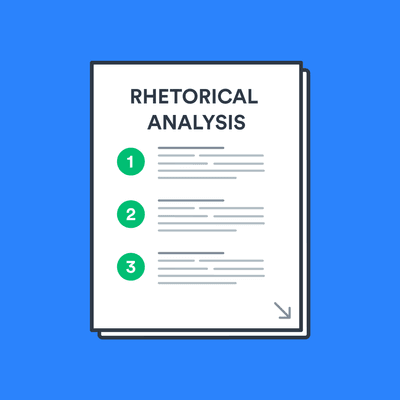
How to Search for a Research Paper: Tips and Strategies

Are you looking to further your research and development? Finding the right information is key in any innovation process, but it’s not always easy. Learning how to search for a research paper that is apt for your current project is an essential skill that R&D leaders should possess.
In this article, we look at how to find reliable sources, tips on finding relevant papers, and utilizing resources so you can make your review of related literature more efficient. Let’s learn together how to search for a research paper.
Table of Contents
Narrowing Down Your Topic for Literature Review
Defining your research question, identifying keywords, search techniques in reviewing related literature, start with broad research databases, look into specialized research databases, additional tips for finding research papers, conclusion: how to search for a research paper.
When it comes to learning how to search for a research paper, the important first step is narrowing down your topic. It can be difficult to find relevant research papers if you don’t have a specific focus. Narrowing down your topic helps ensure that you are seeing the most accurate and up-to-date information available.
The first step in narrowing down your topic is defining your research question. This should be as specific as possible so that you can easily identify relevant sources of information.
Begin by asking yourself broad questions about the topic of interest. This can be done through brainstorming, reading literature, or talking with experts in the field. Consider what topics need further exploration and how your study could contribute to existing knowledge on the subject.
Once you have identified an area of interest, narrow down your focus by considering what specific information would be most beneficial to answer this broader question. Think about who or what might benefit from having this information and why it is important to investigate now rather than later.
After narrowing down your focus, create a more specific research question that will guide your investigation into the issue at hand. Make sure that it is measurable so that results can easily be interpreted and analyzed upon completion of the study.
Additionally, consider whether there are ethical implications associated with collecting certain types of data or conducting certain experiments before finalizing your questions.
Once you have defined your research question, it’s time to start identifying keywords related to it. These will help you search more effectively when looking for sources of information.
By using relevant and specific keywords, you can narrow down your search results and find more targeted information quickly.
The essential step in identifying keywords is brainstorming ideas related to your research question. Think about all of the different terms that could be used to describe what you’re looking for and write them down on a piece of paper or in a document on your computer.
It might help to think of synonyms as well as related topics or concepts that could be associated with what you’re researching.
Narrowing down your topic is essential in improving how to search for a research paper. Once you have a more specific field of research, you can easily brainstorm keywords that will serve as your search terms when looking at search engines.
Once you have narrowed down your topic and identified keywords, it’s time to look for related research articles. Using your identified keywords as search terms, you can now begin compiling different journal articles.
To start your journal article hunt, begin by searching broad research databases such as JSTOR or Google Scholar. These will provide you with a wide range of results that you can then narrow down further.
Searching on JSTOR can be done in two ways – by keyword or by subject area. To search by keyword simply enter your query into the search box at the top of any page on the site. If you’re looking for something specific then it’s best to use quotation marks around your keywords so that only exact matches are returned in your results list.
Alternatively, you can browse through different subject areas using the Browse tab located at the top right corner of every page on JSTOR. This will give you a list of all available subjects which can then be further refined with additional filters such as language or publication date range.
Meanwhile, using Google Scholar effectively requires understanding how it works and knowing what kind of information you are looking for. To get the most out of your searches on Google Scholar start by using keywords that are specific to your topic or question.
Additionally, use advanced search techniques like using options for author name or journal title to narrow down results even further. You can also filter by date range if you’re looking for recent publications in your field.
Lastly, don’t forget about related articles which appear at the bottom of each article page. These can be great resources when exploring new topics!

Once you have identified some relevant articles from these general searches, consider looking into more specialized databases that cater to specific niches. For example, if you are researching a topic related to psychology or neuroscience, PsycINFO may offer more targeted results than other search engines.
Open-access journals are also helpful when conducting literature reviews since they allow free access to all content without requiring payment or subscription fees.
This is especially useful for those who may not otherwise have access to paywalled articles due to financial constraints or other reasons.
Using search engines, databases, and open-access journals is the start of finding relevant research. Building on preliminary research and being organized is essential. Here are some more tips on finding research papers.
- Keep track of what you have searched and the keywords used. This will help you keep up with what has been done so far and save time in the long run.
- Organize the papers using dates, author names, or keywords. This will make it easier to locate specific documents when needed. Reference managers often have ‘tagging’ tools which can be useful here too!
- Identify connecting papers. Start with recent research as this will point to older work on that topic and may also identify key authors for your search. This can help you find more research articles that will point to more journal articles in their references as well.
- Read the abstracts first. These provide a quick overview of each paper’s content, allowing you to determine whether they are relevant before reading further into them or not.
In conclusion, learning how to search for a research paper might be intimidating in the beginning. However, with the right strategies and resources in place, you can make the process much easier.
Start by narrowing down your topic and identifying key phrases. Use these key phrases in your search query, so academic search engines can give you better research articles as a result. Finally, build on your preliminary research by looking at connected research.
By doing these steps, you will find researching related literature is easier and less frustrating.
Are you a research and development or innovation team looking for an easy way to find the data sources needed to power your project? Look no further than Cypris , the ultimate platform for R&D and innovation teams. With our simple search engine, you can quickly locate relevant research papers without spending hours scouring through articles. Streamline your workflow with Cypris today!
Similar insights you might enjoy

2024 Brief on the R&D Software Market

Revolutionizing Medical Devices: Innovations and Trends in 3D Printing

Digital Transformation in Manufacturing: A Comprehensive Report for R&D and Innovation Leaders
Research Paper Writing Guides
How To Find Sources For A Research Paper
Last updated on: Dec 14, 2024
How to Find Sources for a Research Paper | Books, Articles, Journals & more!
By: Donna C.
17 min read
Reviewed By:
Published on: Jan 11, 2024

Writing a strong research paper starts with finding reliable sources. Using up-to-date and credible references is key to ensuring accuracy and relevance. However, beginners often struggle to verify sources, increasing the risk of citing inaccurate information.
If you’re wondering, “How do I find trustworthy sources for my research paper?” —we’ve got you covered!
In this blog, we’ll guide you through narrowing down sources to boost your paper’s credibility. From academic databases to news outlets, we’ve got all the tips you need.
Keep reading to learn more!
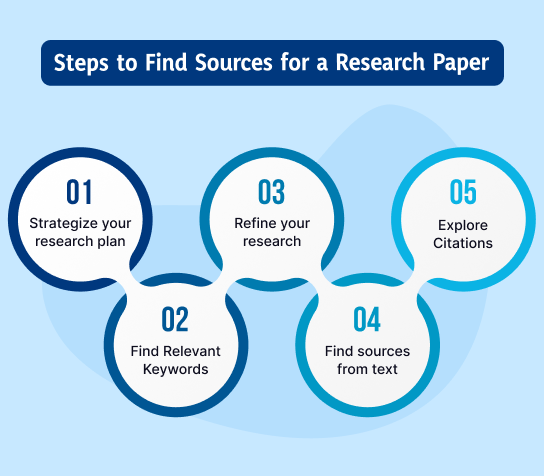
On this Page
Why Reliable Sources Matter in Building a Strong Research
When writing a research paper , literature review , or case study , choosing the right sources is critical to ensuring the accuracy and credibility of your work. Reliable sources are up-to-date, credible, and directly relevant to your topic, helping you build a strong foundation for your argument.
Types of Sources for Research
In research, there are generally three main types of sources that are commonly recognized:
As you move through different stages of your project, the types of sources you need may change. But no matter the stage, there are three main places to find solid, trustworthy sources:
- Research databases for scholarly articles
- Your institution’s library for books and journals
- Other reliable online resources for extra insights
How to Find Sources for Your Research Paper in 5 Steps?
Here are simple steps to find references for research papers:
Step 1. Strategize Your Research Plan
Before you start searching for sources, take the time to develop a solid research plan. Clearly define your research goals, objectives, and the scope of your paper. Identify the specific aspects of your topic you want to explore and the questions you aim to answer.
Narrowing down your focus early will help you stay on track throughout the process. Look for key terms related to your topic, as these will become your search terms.
You can identify these search terms within the research paper title , thesis statement , and main headings of your research paper.
Step 2. Find the Relevant Keywords
Once you have your search terms, use them to identify relevant keywords. Keywords are important because they guide your search for information.
For example , if you’re researching renewable energy, you might use keywords like “solar power,” “wind energy,” or “alternative energy sources.”
Use search engines like Google or Bing for a general search, but for more academic and specific results, try using databases like Google Scholar or JSTOR. Remember that all keywords should be relevant to your topic.
Step 3: Conduct Initial Searches and Identify Potential Sources
Now that you have your search terms and keywords, use them to conduct initial searches on academic databases, library catalogs, and search engines. This step is about gathering a broad pool of sources that could be useful.
You’re not narrowing down results just yet—your goal is to find a variety of sources that align with your research topic. As you browse through the results, take note of sources that seem the most relevant and credible.
Step 4. Find Sources from Text
Once you have found some articles or texts that are relevant to your research topic, dig deeper into them to extract valuable sources. Look for citations and references within these texts that could lead you to additional credible sources.
Tools like Zotero , Mendeley , and EndNote can help you organize and manage your citations, saving you time and effort as you gather more sources.
Step 5. Explore Citations
As you read through the articles or books you’ve gathered, pay close attention to the citations and references they contain. These often point to other scholarly works that could add depth to your research.
Many academic articles also have a “related articles” feature that will help you discover additional sources. Exploring these citations will expand your research and give you a broader understanding of your topic.
After knowing how to find sources, you will need help citing them. Visit our blog to learn how to cite a research paper .
Now, let's take a look at the different sources you can use in your research paper to make it strong and credible.
Where to Find Sources for Your Research Paper?
When it comes to gathering sources for your research paper, there are several reliable places to look. Let’s look at each in detail:
#1 Research Databases
Research databases are specialized search engines that provide access to a wealth of scholarly articles, journals, books, and other academic resources. These databases are one of the best places to find credible, peer-reviewed sources for your research paper.
- Why Use Them?: Research databases provide access to academic resources not found in regular search engines. They offer credible, peer-reviewed journals, articles, and research papers from experts.
- How to Use Them : When searching in a database, start by using specific keywords related to your research topic. Many databases allow you to filter results by publication date, type of source, and subject, making it easier to find relevant materials.
Here are examples of databases that cover different types of academic fields.
#2 Your Institution’s Library
Most universities and colleges offer access to a variety of academic resources through their libraries. Institutional libraries are equipped with both physical books and digital resources, making them an excellent place to find sources for your research.
- Why Use It? : Your library gives you free access to journals, eBooks, and research databases that may not be available online, often through student subscriptions.
- How to Use It : You can either visit the physical library to check out books or use the online library portal to access digital resources.
Most libraries have an online catalog where you can search for books, articles, or journals by title, author, or subject. Ask a librarian for help if you're struggling to find relevant materials, as they can guide you to specific resources.
#3 Online Journals and Articles
In addition to research databases, you can find valuable sources through online journals and websites that specialize in scholarly articles. Many journals have their own websites where they publish current research.
- Examples :
- Wiley Online Library
- SpringerLink
- Taylor & Francis
- SAGE Journals
- Why Use Them?: Online journals publish the latest research across various fields and often offer free or open-access articles. This makes them great for finding studies directly related to your topic.
- How to Use Them : You can often search for articles using the journal’s search function. Use advanced search features to narrow down your results by date, author, or keywords. Some journals may allow free access to older articles, but more recent articles might require a subscription or payment.
#4 Books (Printed and E-books)
Books can provide in-depth information on your topic, offering a broader context and historical perspective that shorter articles or papers may not cover.
- Why Use Them? : Books often provide a more comprehensive treatment of a subject, allowing you to delve deeper into background information, theories, methodologies, and case studies. Both printed and eBooks can be great sources for theoretical background or detailed explanations of complex topics.
- How to Use Them : You can find books through your institution’s library or online platforms like Google Books, Project Gutenberg, or Open Library. Search by topic or author to find books related to your research. When using eBooks, look for academic publishers or reputable sources to ensure credibility.
#5 Government Publications and Reports
Government agencies often produce reports, studies, and publications that are valuable sources for research papers. These sources include statistics, official documents, white papers, and policy reports.
- U.S. Government Publishing Office (GPO)
- United Nations
- World Health Organization (WHO)
- Why Use Them? : Government publications are generally trustworthy and provide factual, data-driven insights. They can be especially useful for topics related to public policy, health, economics, and social issues.
- How to Use Them : Many government websites have dedicated sections for publications, which you can access for free. You can also find specific reports by searching through databases like GovInfo or Data.gov.
#6 News Articles
For research topics that require up-to-date information or cover current events, news articles can be an excellent resource. Major newspapers, magazines, and online media outlets often cover the latest trends, studies, and research in various fields.
- The New York Times
- The Guardian
- National Public Radio (NPR)
- Why Use Them? : News articles provide information about the latest developments in specific fields, making them a good option for topics related to contemporary issues. However, make sure to evaluate the credibility of the source and avoid using unreliable tabloids or biased media outlets.
- How to Use Them : Most news websites have a search function where you can look for articles on specific topics. You can also access archives or databases that collect major newspaper articles, such as ProQuest or NexisUni.
#7 Academic Blogs and Websites
While blogs may not always offer the same level of authority as academic journals, there are many reputable blogs and websites written by experts in their fields. These can provide valuable insights, commentary, and research findings.
- Harvard Business Review
- Stanford University Blogs
- ResearchGate
- Why Use Them? : Academic blogs often present research findings in a more accessible format and may even discuss new studies or ongoing debates in a particular area. These blogs can be a great supplement to peer-reviewed articles.
- How to Use Them : When using blogs or websites, always check the credentials of the authors and look for posts that are cited by other experts in the field. Reputable academic institutions and research organizations usually provide reliable information on their official blogs.
Which Sources Should You Avoid?
Now, let's talk about which sources you should stay away from and why when you're doing your research.
Try to stay away from the above sources. At first glance, they might look reliable and trustworthy, but as you dig deeper, the provided facts and figures might not be true at all!
To wrap up, finding reliable sources is crucial because it ensures your research paper is accurate and trustworthy. Good sources provide a strong foundation for your arguments, making your work more credible.
Whether it's research databases, libraries, or trusted websites, there are plenty of places to find valuable information for your paper.
If you're still having trouble narrowing down the right sources, consider getting some help. At SharkPapers.com, we take research papers seriously, and our track record of exceptional results speaks for itself.
Our skilled academic writers can help you find the best sources for your research work and handle your “ Write my research paper ” request with ease!
Just visit our paper writing service? , inform us about your requirements, and we’ll handle the rest!
Frequently Asked Questions
How to find the source of an article online.
To trace the source of an online article, check for details like the author, publication date, and references. Utilize databases or Google Scholar to find the original source.
How to find sources for an essay?
Identify keywords, use academic databases, and check citations within articles to find relevant and credible sources for your essay.
How to find sources on a website?
Explore the website's "About Us" or "References" sections, looking for links to cited studies or external sources to ensure credibility.
How to find primary sources for a research paper?
Search archives, libraries, or online databases for original documents, firsthand accounts, or artifacts related to your research topic.
How to find secondary sources for a research paper?
Explore academic databases, libraries, and scholarly journals for articles, books, or documentaries that provide analysis or interpretation of your research topic.
What is the difference between a popular source and a scholarly source?
Here’s how popular sources and scholarly sources differentiate:

Donna writes on a broad range of topics, but she is mostly passionate about social issues, current events, and human-interest stories. She has received high praise for her writing from both colleagues and readers alike. Donna is known in her field for creating content that is not only professional but also captivating.
Was This Blog Helpful?
Keep reading.
- Learn How to Write a Research Paper: Step-by-Step Guide
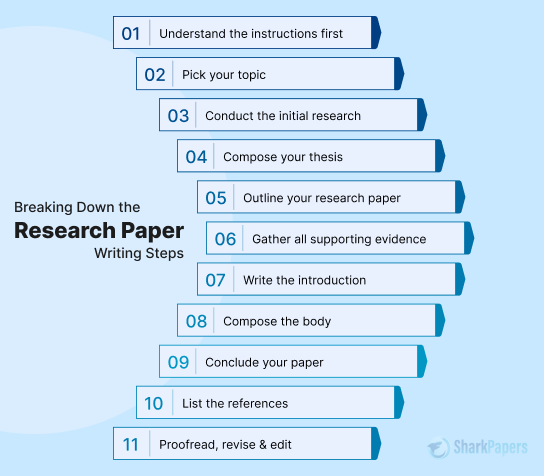
- Everything You Need To Know To Conduct Effective Qualitative Research

- Types of Qualitative Research Methods with Examples

- Best 300+ Ideas For Research Paper Topics in 2024

- How to Write a Proposal for a Research Paper: Steps & Examples

- A Beginner’s Guide on How to Write an Abstract

- 13 Best Tips to Start a Research Paper

- How To Write An Introduction For A Research Paper - A Complete Guide
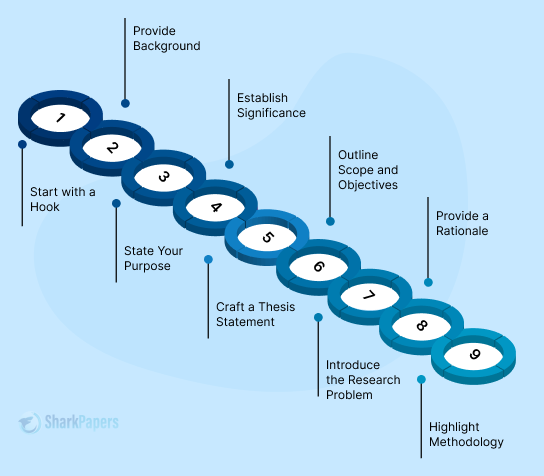
- Learn How To Write An Abstract For A Research Paper with Examples and Tips
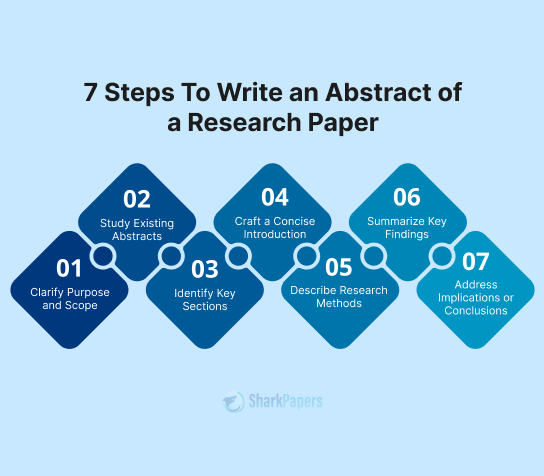
- How to Write a Literature Review for a Research Paper | A Complete Guide
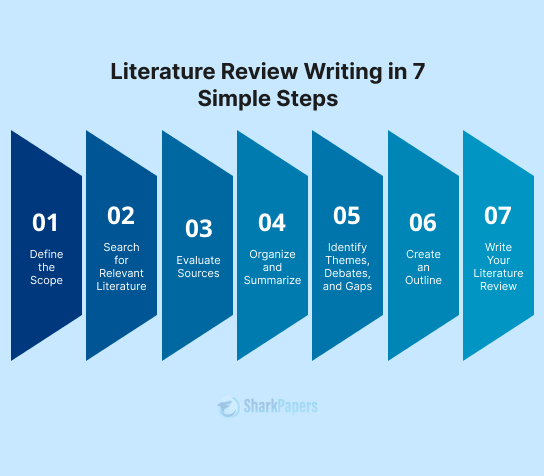
- A Guide to Writing The Methods Section of A Research Paper
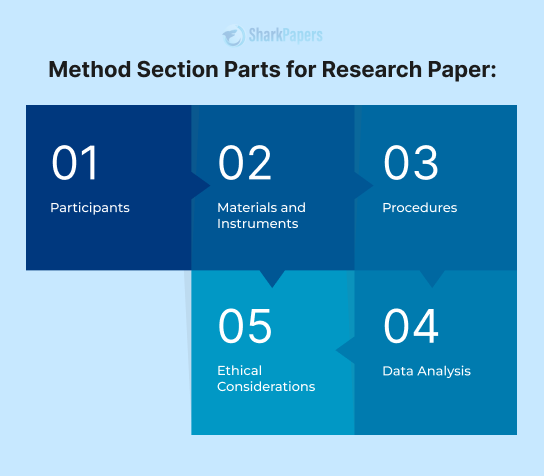
- How to Write a Research Paper Thesis: A Detailed Guide
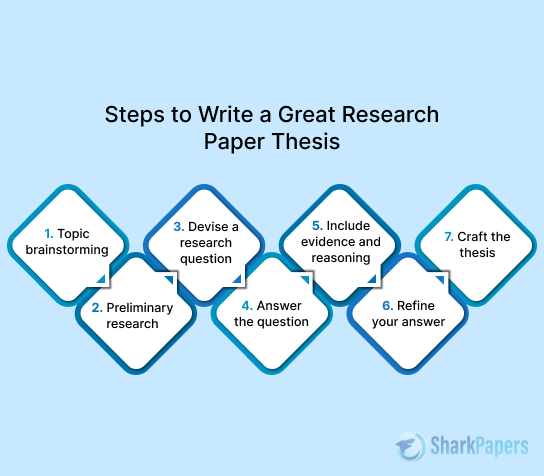
- How to Write a Research Paper Title That Stands Out
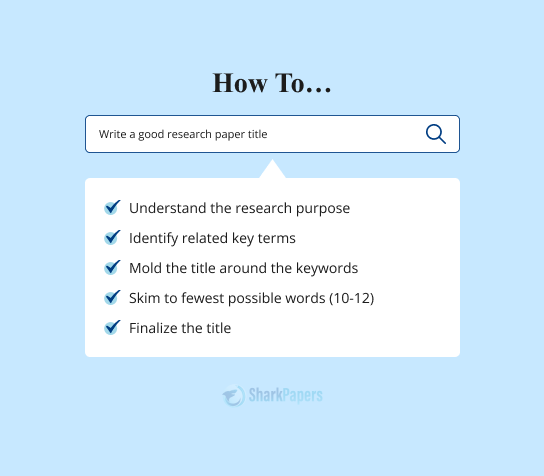
- A Detailed Guide To Writing a Research Paper Conclusion
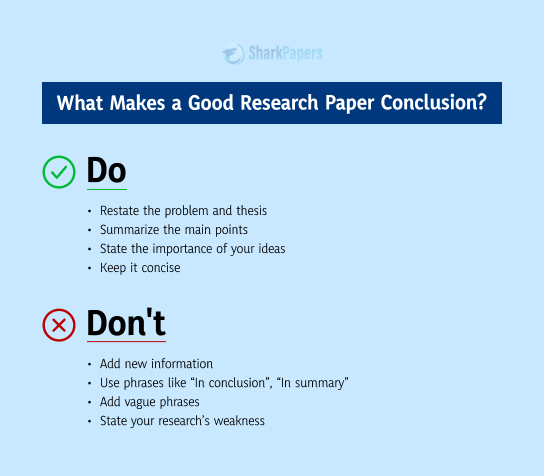
- How To Write The Results Section of A Research Paper | Steps & Tips
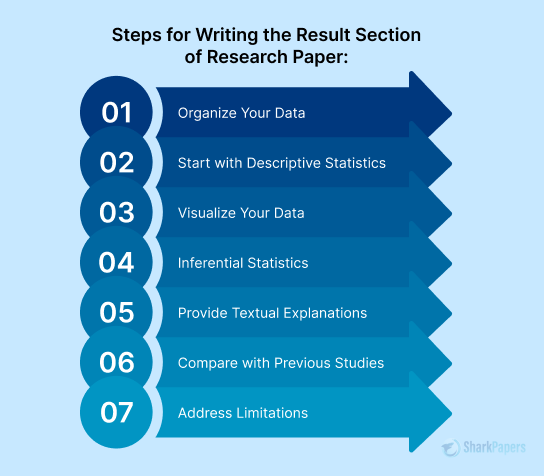
- How to Write a Problem Statement for a Research Paper: An Easy Guide
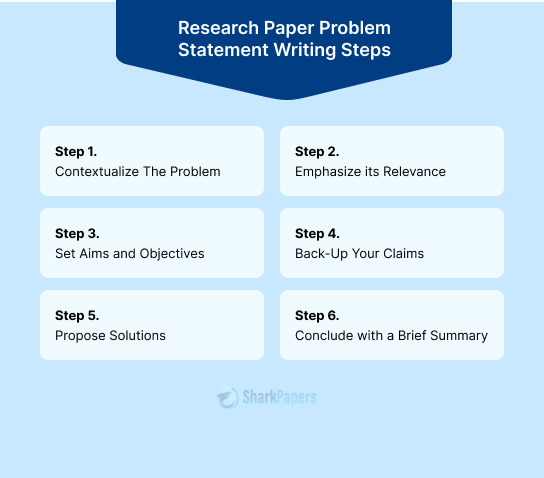
- A Detailed Guide: How to Write a Discussion for a Research Paper
)
- How To Write A Hypothesis In A Research Paper - A Guide with Examples
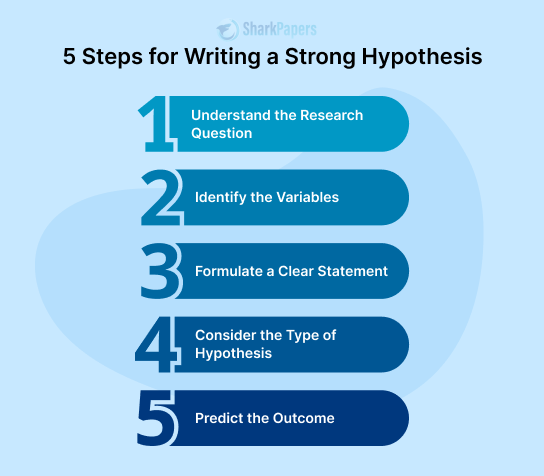
- Learn How To Cite A Research Paper in Basic Formats
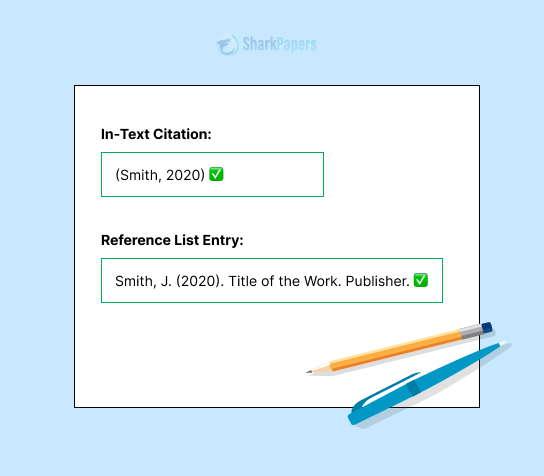
- The Ultimate List of Ethical Research Paper Topics in 2024
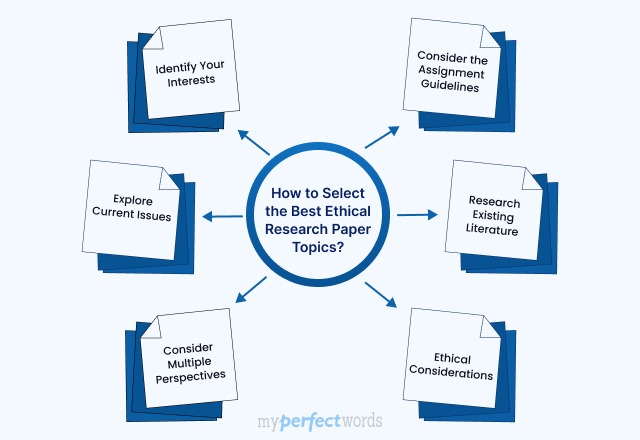
- 150+ Controversial Research Paper Topics to Get You Started
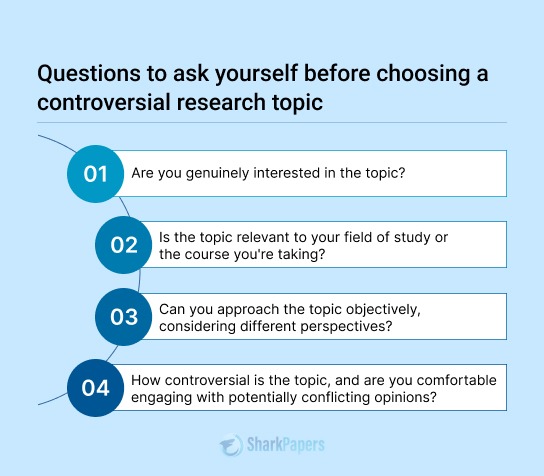
- How to Edit Research Papers With Precision: A Detailed Guide
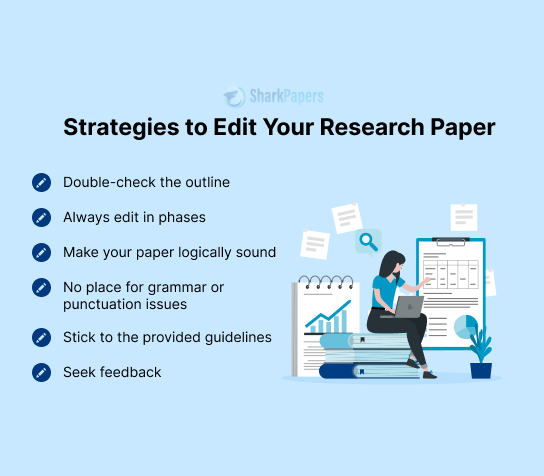
- A Comprehensive List of Argumentative Research Paper Topics
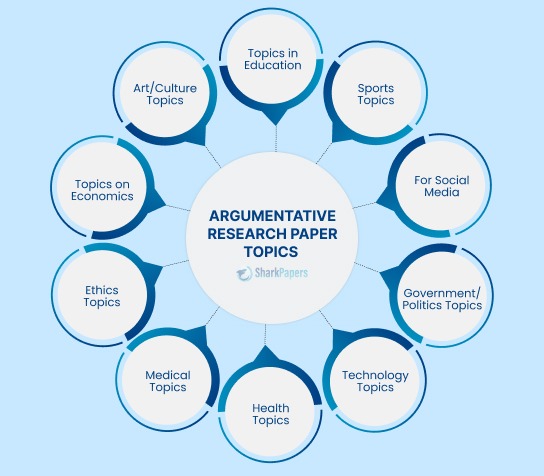
- A Detailed List of Amazing Art Research Paper Topics
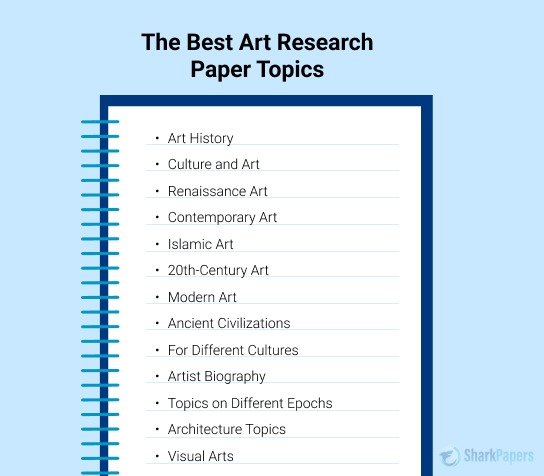
- Diverse Biology Research Paper Topics for Students: A Comprehensive List
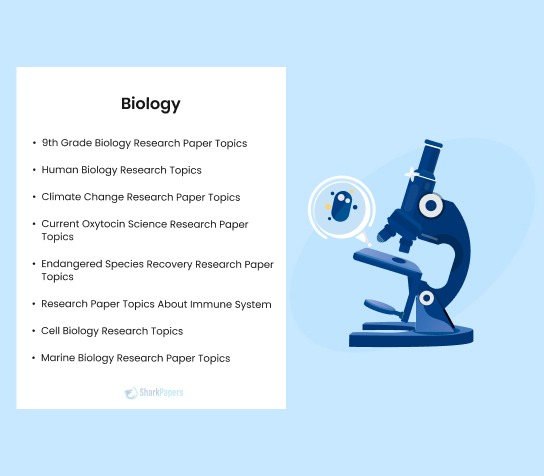
- 230 Interesting and Unique History Research Paper Topics
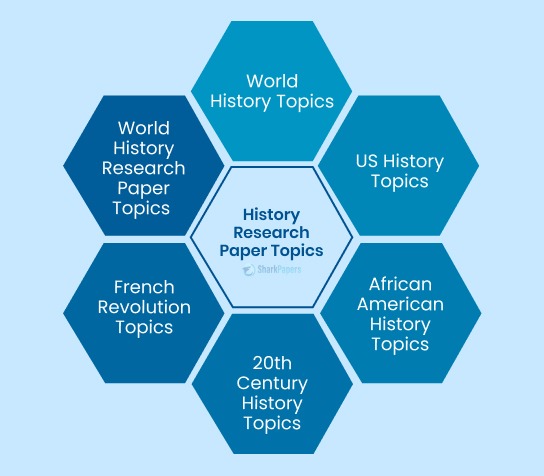
- 190 Best Business Research Paper Topics
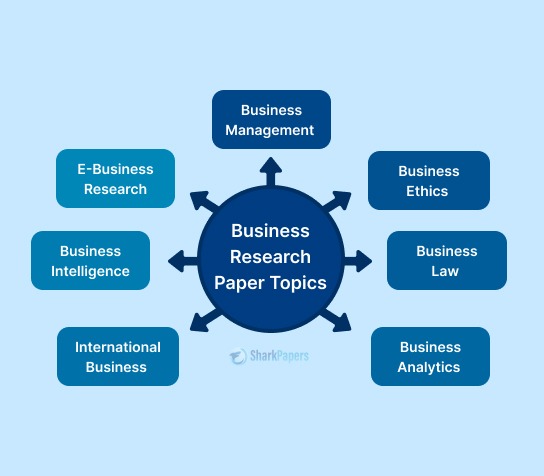
- 200+ Engaging and Novel Literature Research Paper Topics
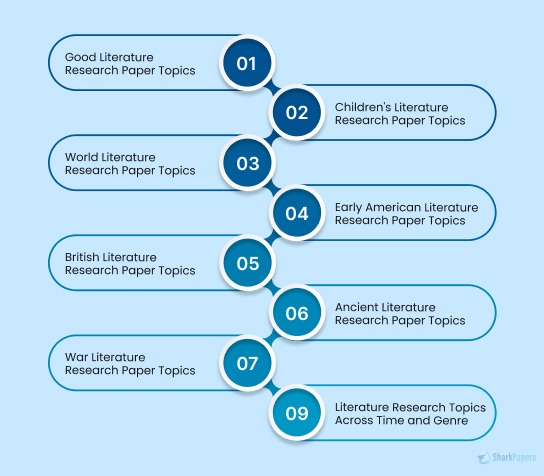
- A Guide on How to Write a Social Science Research Paper
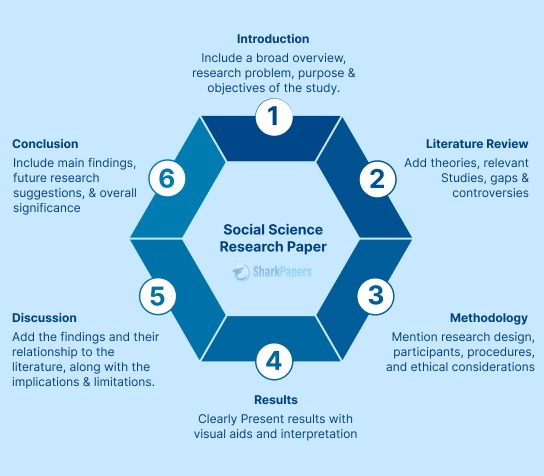
- Sociology Research Papers: Format, Outline, and Topics
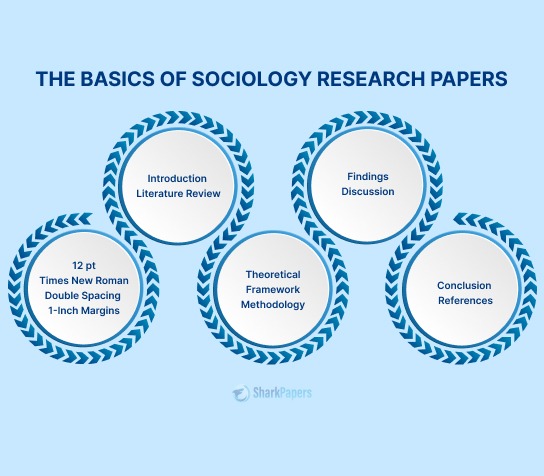
- Understanding the Basics of Biology Research Papers
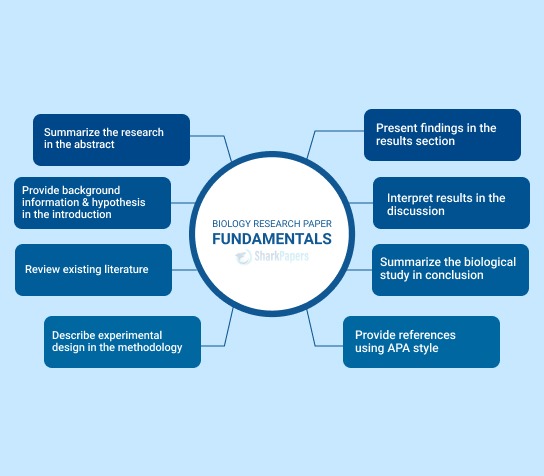
- How to Write a Psychology Research Paper: Guide with Easy Steps
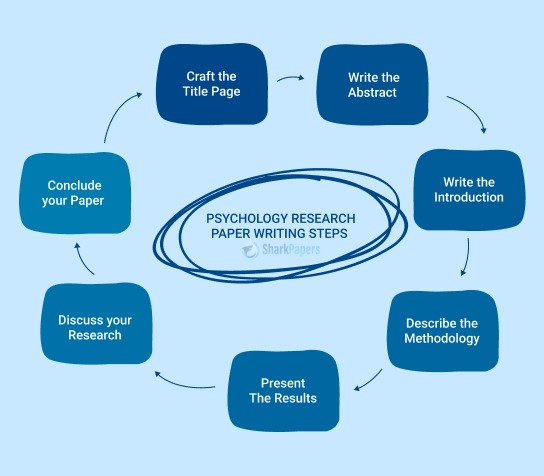
- Exploring the Different Types of Research Papers: A Guide
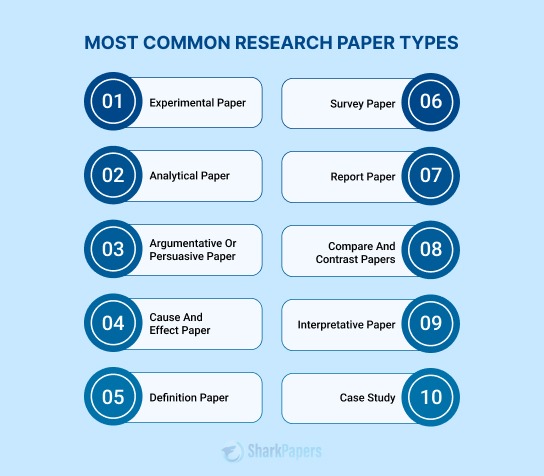
- Scientific Research Paper: Types, Formats, Structure & Writing Process

- Argumentative Research Paper | A Step-by-Step Guide

- Analytical Research Papers: A Detailed Walkthrough

- Experimental Research Paper Explained Comprehensively

- An In-Depth Look at Psychology Research Paper Examples

- 15+ Research Paper Examples for Different Types and Formats

- Free Argumentative Research Paper Examples

- Refine Your Literary Skills with Literature Research Paper Examples

- Get Inspired by 10+ Biology Research Paper Examples

- A Comprehensive Guide to History Research Paper Examples

- An Extensive List of Business Research Paper Examples

- 10+ Best APA Research Paper Examples for Effective Writing

- 10+ Expertly Crafted MLA Research Paper Examples

- Explore 8+ Chicago Research Paper Examples for Academic Excellence

- 15+ Examples of Abstracts for Research Papers

- Exploring IEEE Research Paper Examples: A Practical Guide

- Exploring Research Paper Thesis Examples: A Beginner's Guide

- 10 Free Research Paper Proposal Examples
-12114.jpg)
- A Look at 10 Interesting Art Research Paper Examples

- Survey Research Papers: Types, Format, Writing & Examples

- A Closer Look Into Research Paper Format: APA, MLA, Chicago & IEEE

- APA Research Paper Format 7th Edition: Guide with Examples

- MLA Research Paper Format Made Easy: Step-by-Step Guide

- Formatting Research Paper Title Page in APA, MLA & Chicago

- Crafting the Perfect Research Paper Outline | Steps & Examples

- A Detailed Guide to Chicago Research Paper Format

- An Easy Guide to IEEE Research Paper Format

- 12+ Practical Research Paper Outline Examples for Structuring Your Thoughts

- Engaging Psychology Research Paper Topics for Your Next Project

Struggling With Your Paper?
Get a Custom Paper Written at
with a FREE Turnitin report, AI report, title page, unlimited revisions, and a lot more!
LIMITED TIME ONLY
People Also Read
OFFER EXPIRES SOON!
© 2024 - All rights reserved
Disclaimer: All client orders are fulfilled by our team of experienced, professional writers. The essays and papers we provide are intended to serve as educational tools and reference models only, and should not be submitted as original work.
LOGIN TO YOUR ACCOUNT
SIGN UP TO YOUR ACCOUNT
- Your phone no.
- Confirm Password
- I have read Privacy Policy and agree to the Terms and Conditions .
FORGOT PASSWORD
- SEND PASSWORD

COMMENTS
Therefore, asking your supervisor is one of the most straightforward ways to find research papers. Even though your supervisor has not put up a folder like that, you can still ask them for recommendations, and they can point out a couple of pertinent articles. From there, you can find the references in the papers they recommended. Use feed ...
Unriddle's innovative AI assistant, automatic research paper fetching, and seamless citing capabilities make it a valuable tool for researchers and students looking to streamline their research process and produce high-quality work efficiently. By leveraging Unriddle's AI-powered features, you can enhance your writing, access relevant research ...
Research databases. You can search for scholarly sources online using databases and search engines like Google Scholar.These provide a range of search functions that can help you to find the most relevant sources. If you are searching for a specific article or book, include the title or the author's name.
Research papers are only as strong as the sources they cite, making a thorough Literature Search crucial for academic success. Finding credible and relevant sources can be a daunting task. We delve into the ins and outs of how to find sources for a research paper.
There are many different types of research papers, ranging from a high school term paper to a master's thesis or doctoral dissertation. Photo by Wallace Chuck from Pexels How To Start A Search For Sources 1. Start simple. If you're wondering how to find sources for a research paper, the easiest and best way to start is simple!
Academic search engines have become the number one resource to turn to in order to find research papers and other scholarly sources. While classic academic databases like Web of Science and Scopus are locked behind paywalls, Google Scholar and others can be accessed free of charge. In order to help you get your research done fast, we have compiled the top list of free academic search engines.
JSTOR: An extensive digital archive of academic journals, especially in humanities and social sciences. It provides access to decades of important scholarly publications. Web of Science: Known for tracking article citations to help researchers understand how ideas have developed and identify influential papers in their field. PubMed: The main resource for biomedical and life sciences research ...
Additional Tips for Finding Research Papers. Conclusion: How to Search for a Research Paper. Narrowing Down Your Topic for Literature Review. When it comes to learning how to search for a research paper, the important first step is narrowing down your topic. It can be difficult to find relevant research papers if you don't have a specific focus.
Good research sources are not hard to find in the library, but they require time. At the start of research, the bigger picture can be hard to see. Therefore the first step to find a good source for an academic research project is to start anywhere, even online, and narrow your search once you've discovered a connector string.
You can identify these search terms within the research paper title, thesis statement, and main headings of your research paper. Step 2. Find the Relevant Keywords. Once you have your search terms, use them to identify relevant keywords. Keywords are important because they guide your search for information.